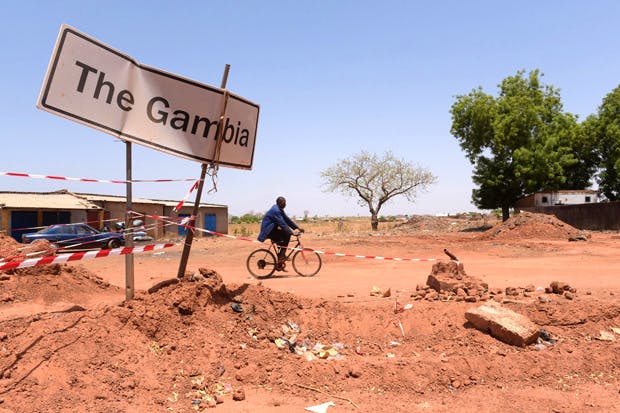
Keeping the Singapore Dream Alive.
The Gambia has been independent for 57 years. We no longer have the excuses that we are new to the game or just starting or should be allowed our growing pains. All of that is barking nonsense.
Singapore gained its independence (August 9, 1965) the same year the Gambia gained independence (February 1965). The founding father of Singapore, late Prime Minister Lee Kuan Yew, studied Singapore to figure out what options were available for small island nations suffering social unrest and facing regional military threats.
In the last fifty-seven years of nationhood for both The Gambia and Singapore, what are Singapore’s successes and failures in The Gambia in terms of socio-economic development? One cannot help but reflect on what could have been for our own country, The Gambia.
After all, Singapore and The Gambia started as equals back in the 1960s. However, the Gambia has been left in the dust by its neighbors as each country learned to evolve through the times.
Intelligent and efficient Singapore is the country, The Gambia could have been today. However, instead, the Gambia, like a marathon runner ahead in the race who stumbled and suffered a spectacular fall, has been hard for The Gambia to pick herself up.
It has become even more difficult after the country fell into the hands of a dictator, Yahya Jammeh, who replaced former President Dawda Kairaba Jawara after his ouster in 1994. Jammeh rules the Gambia for twenty-two years with Machiavellian character and tendencies.
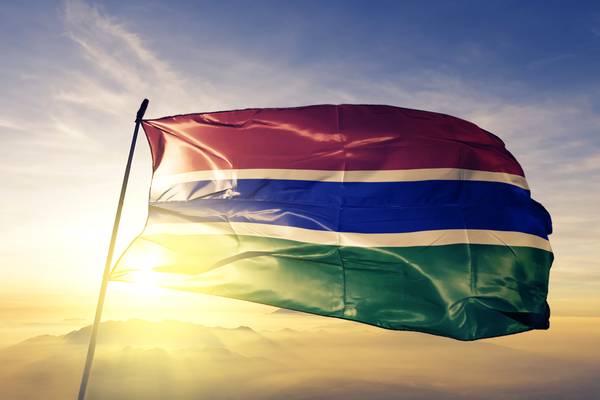
Adama Barrow third president of The Gambia, who appears to be suffering from executive myopia, has adopted half-measures in his administration that are harming the presidency and his authority as the First Citizen of the Gambia besides tormenting Gambians.
Among other challenges, his administration creates an impression of a reluctant leader who enjoys the trappings of office but is not ready to get the work done combating public sector corruption. Worse, it suggests that Barrow is being held captive by forces he cannot disentangle himself from.
However, Barrow swore to uphold the national good, and what are Gambians asking for? Who is holding Adama Barrow hostage?
Meanwhile, Singapore became a global finance and trade hub from what was described as a formerly sleepy port. The legacy of Singapore’s founder, former Prime Minister Lee Kuan Yew, continues to guide the country’s multicultural society even after his death.
Some say it is unfair to compare Singapore to The Gambia because Singapore is more minor than The Gambia. The Gambia is about sixteen times bigger than Singapore. The Gambia is 11,300 square kilometers.
The population of The Gambia is slightly less than two million people. (2 million fewer people live in The Gambia than Singapore.)
Singapore is approximately 697 square kilometers, and its population is nearly six million. (Four million more people live in Singapore than in The Gambia.)
However, as with many things, it is not the physical size that matters most. What you do with it counts more. Singaporeans have accomplished a lot with their space despite the scarce resources.
To give you an idea of what they had to deal with, the country relied on imported water from Malaysia for most of its water needs.
In recent years, “the city-state has made its gutters, drains, and rivulets a vast basin to catch rainfall,” in addition to increasing the size of its water catchment areas to ease their dependence on Malaysia.
It is evident that instead of holding them back, a lack of resources made Singaporeans more resourceful.
Accommodating Singapore’s booming population seems like a welcome challenge for them as well. To manage the country’s growth, which is projected to reach six million people over the next two decades, Singapore’s government teamed up with experts from the “Massachusetts Institute of Technology (MIT) to devise ways to manage its expansion – knowledge it plans to export to other cities.”
The whole point is “to study how cities work and how they can work better.” Those who have been to Singapore know how efficiently things are run in the country.
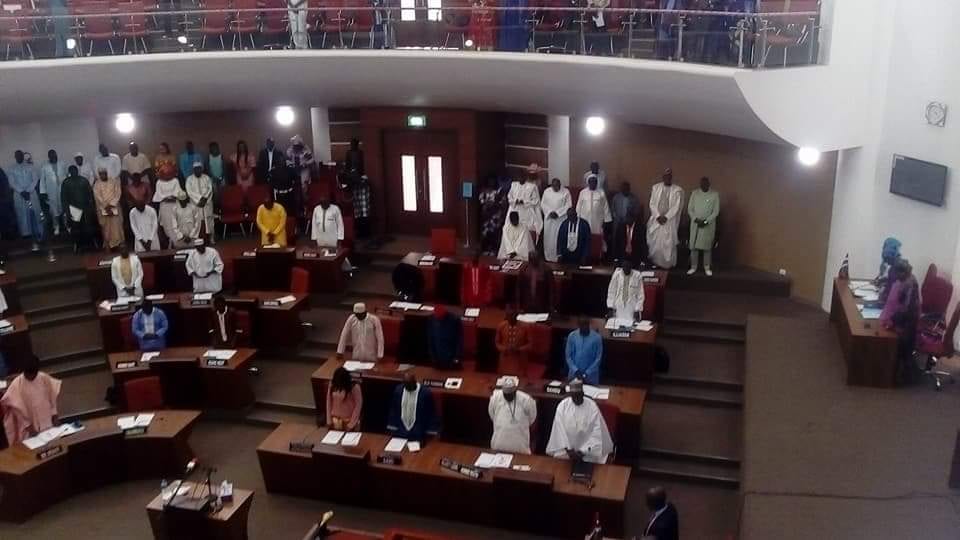
Look at the difference today: Singapore’s government owns more than 100 companies with a market cap of more than one billion dollars, while we are selling off ours.
Singapore’s investment agency loaned Barclays’ Bank $10 billion during the fiscal crisis. Its National Reserve is $900 billion.
For another example, look at Estonia with a population as small as The Gambia’s at 1.5 million people. Estonia declared formal independence on August 20, 1991.
Twenty-seven years ago, Estonia was a dark, damp backwater of the Soviet empire. Today, it is light and clean. Skype was invented in Estonia, half a billion people online, and held its last general election on the Internet.
Emerging from the most significant fiscal crisis in its modern history, Estonia has a well-educated citizenry, a balanced budget, is debt-free, has a simple flat-rate tax, low crime rates, a stable, convertible currency backed by a currency board, and a solid peg to the euro.
It has the most advanced electronic government globally. All its advancements were made in the twenty-seven years we wasted trying to sell tourism and peanut farming.
We must stop saying we need more time. We must stop saying the country is young. No more excuses are available for us now.
Suppose only The Gambia could learn from Singapore and apply the lessons to the tasks involved in managing its people and resources.
In that case, the country could also join its neighbors at the finish line. However, unfortunately, despite the Gambia’s vast human and natural resources and immense talent pool, the country cannot seem to get its act together.
Those waiting for the “pipe dreams” of returning to tourism’s heyday in The Gambia forget it. Those days are gone for good. We may build massive hotels and tourism infrastructure to excess but know this: That hotel development model died in the 1990s and belongs to the 1960s, Las Vegas era.
More importantly, the people we expect tourists to stay in and visit these monstrosities are busy losing their homes and jobs and preparing to pay higher taxes.
How do we know that the times when we depended on 78-80 percent of our tourists coming from America and Europe are gone and will never return?
In the Gambia, I often refer to two centers of excellence: Our “smiling coast,” whose peace and stability are spoken of with reverence everywhere I travel in the world.
The second is our “human resources.” Our trained civil service agents on international assignments are highly regarded everywhere I go.
In addition, the Gambia has the best-trained technocrats in both multinational and transnational institutions and academia.
It is ironic, I think, that our intellectuals do not make the same excuses our governments and their party hacks have made over the years.
Instead, Gambian intellectuals and technocrats developed their skills while serving for dictatorships to succeed against countries with an actual democratic setup, despite their situation in The Gambia. If we could only match them, our future would be priceless.

Let us look at why Lee Kuan Yew’s advice was that The Gambia and Singapore need to develop discipline more than democracy. He was right.
Democracy works only when the majority are informed and educated. That is not the case in The Gambia. It seems there is this misguided notion among Gambians that democracy means freedom to do whatever they want, including breaking the law.
Gambians lack discipline because law enforcement agencies, including the police and justice departments, do not perform their jobs properly.
To be better in their careers, they must realize that they deal with primarily ignorant and poor people, so they must apply zero tolerance and strict enforcement of the law.
Otherwise, people will not learn to obey the rules. Perhaps it would be best if members of Gambian law enforcement agencies treat the populace like children who need guidance.
That is how it has been done in Singapore (until now, anyway). No chewing gum, anyone?
There is chaos in public places in The Gambia every day due to a lack of discipline. One wonders what law enforcers are doing to fix the problem. Nothing, it seems.
People throw garbage in the streets and rivers every day and build new shacks on private and public lands. Again, one wonders what the police and local government agencies are doing to fix the problems.
These are just some of the many violations tolerated in the country. Some say this is so because politicians patronize the masses to get votes, which brings us to my next item.
Law enforcement is weak in The Gambia because laws are not applied equally to everyone. This is evident in how incumbent public servants use selective justice when prosecuting criminals.
Therefore, many people think it is okay to commit a crime. If you need further convincing, look at how presidents treat their allies.
When people see others get away with violating laws just by being friends with or bribing those in power, their natural tendency is to emulate or copy what they see.
Many elite members of Gambian society do this to get away with violating laws. Those from the lower class copy those in the upper class.
Mismanagement and mediocrity ruined The Gambia. This is precisely why it is best to ask the elite members of Gambian society to change instead of asking or expecting the masses to change.
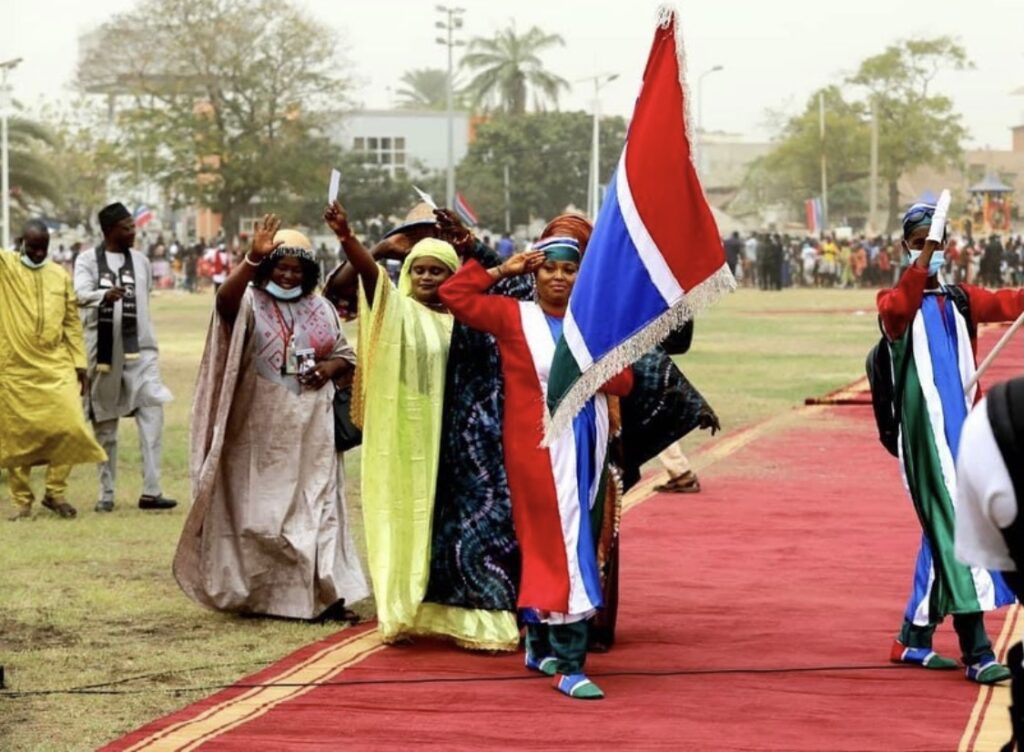
If patronage politics is strong in The Gambia, the country will not progress. You can even see patronage politics on the road. The vehicles that block the streets and cause elites operate significant traffic jams.
However, unfortunately, the vehicle operators do not discipline their drivers. The traffic enforcers are not doing anything drastic because they will likely cut bus operators.
An anti-intellectual attitude in The Gambia has been a problem that has plagued the country since the mid-1980s and into the 1990s.
The problem started when The Gambia allowed a “reluctant” soldier with no expertise in running a government to become the republic’s president.
As a result, instead of promoting excellence, former presidents promoted mediocrity and incompetence. As a result, the Gambia’s society became increasingly emotional and vindictive.
One only needs to look at the current crop of public servants today to realize why the country is run like hell.
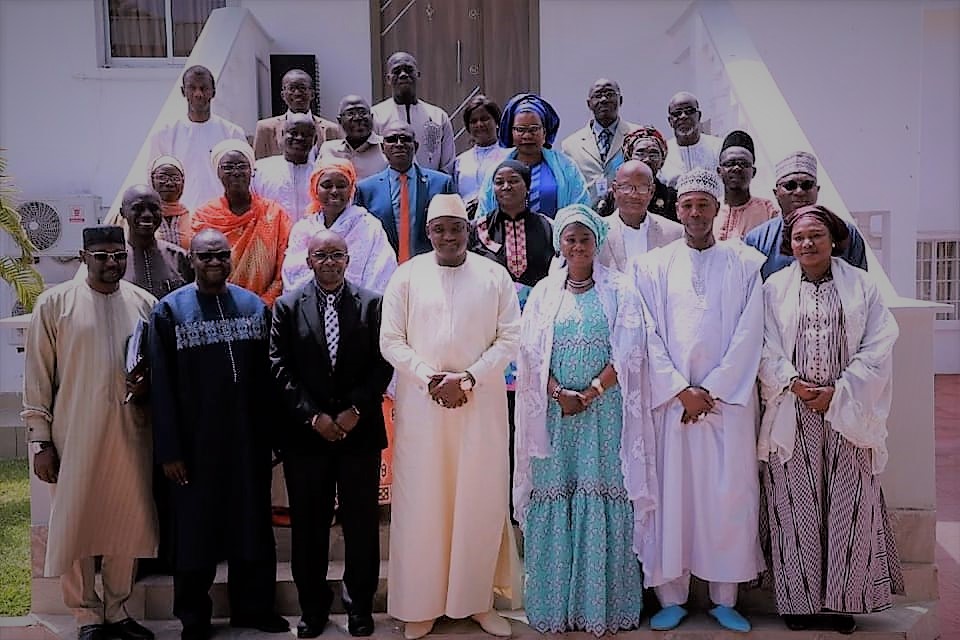
Instead of voting for experts and professionals, or at least someone with more experience and vision, Gambians love putting celebrities and famous personalities and their relatives in powerful positions in government.
It appears Gambians are allergic to people who have knowledge and expertise in solving the country’s problems. Instead, they would go for someone they can relate with even when nothing is being done to solve the country’s woes—no wonder the country’s public transport system is almost in ruin.
Only in The Gambia are intellectuals ostracized. When you explain something deemed too complicated for the average person, they dismiss you with exasperated expressions in a condescending manner.
Therefore, some scholars would instead go with the flow than risk being shamed for using their heads. If intellectuals and experts are not in charge of The Gambia, the country will not reach the same status as Singapore.
The above reasons are holding The Gambia back from reaching a developed status. They all pertain to Gambian cultural traits.
Some would say the country’s flawed system has the country around and suggests that a parliamentary form of government may help foster intellectual discourse.
However, the system is only as good as the people. There is very little chance a sound system will be designed by a society lacking discipline, anti-intellectual, and imprisoned by patronage politics.
Sadly, such a society is guaranteed to remain stagnant or grow worse in the decades to come.
Long live the Gambia! Long live Africa.
By Alagi Yorro Jallow











Recent Comments